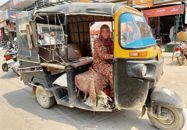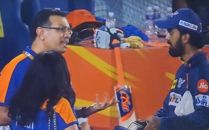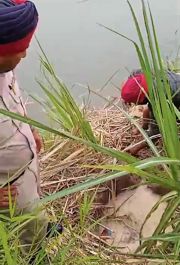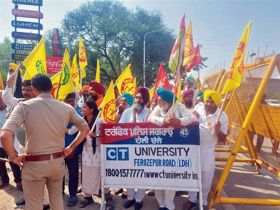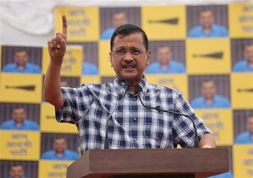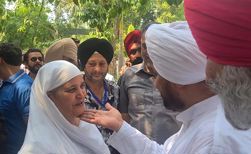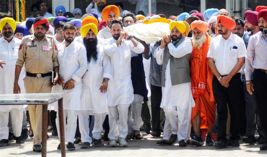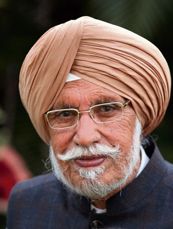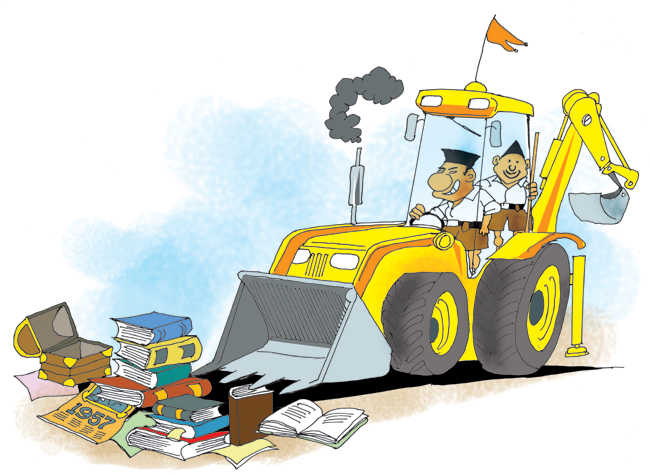
Illustration: Sandeep Joshi
Harish Khare
Since it is the RSS that controls and directs the Central government, as a journalist, I find myself obliged to understand the RSS thinking and propaganda. I regularly read the RSS “mouthpiece”, the Organiser.
I was amused and amazed to read in the latest issue (July 3, 2016) a letter to the editor by some gentleman from Meerut on the subject of the departure of the Reserve Bank of India Governor, Raghuram Rajan. The letter writer is critical of the Congress leaders’ criticism of the manner in which Rajan was forced out, especially after Dr Subramanian Swamy attacked the Governor. What took my breath away was the historical recall:
“They (the Congress leaders) should recall how B Rama Rau, who holds the record of longest tenure as RBI Governor, was made to resign in 1957. The then Finance Minister TT Krishnamachari had publicly admonished him for his policies and conduct, not once but at least twice. Jawaharlal Nehru, the Prime Minister, kept mum all the while….”
That is impressive. 1957? Eh!
A ‘sin’ committed sixty years back becomes a precedent for a political misdemeanour today!
A few days ago, the ruling party’s president was reported to have gone back to 1947. According to newspaper reports, this gentleman held Nehru responsible for the “Kashmir problem” because he had agreed to a United Nations-directed call for a ceasefire. If India’s first Prime Minister was not so foolish and wooly-headed to heed the UN call, the Army would have “cleared” out the “Pakis.”
Such historical myths, such innocence, such frivolous liberties with facts!
On the other hand, many historians, including Lt-General SK Sinha (retd), have suggested that the Pakistanis were foolish and impetuous. Had they waited for two months before invading the Valley, the Srinagar airport would have been snowed under and India would not have been able to airlift its Army men.
History and its myths are important in a nation’s life, but the current rush to reinvent history has made us a laughing stock. The outsider is not impressed with all our bragging at home. Just see what happened at Seoul in this NSG business.
Undeterred, the distortions and lies have become the staple diet of the politician. Make no mistake about it. We are building a new republic of historical lies.
I must return to the subject of demagogues and their capacity for casting a demonic spell. And, when that spell gets dissipated, it is the poor citizen who feels cheated. Something like that has happened in England within a week of the demagogues’ victory in the referendum on leaving the European Union.
Within days, the most accepted face of the “leave” campaign, Boris Johnson, former mayor of London, has packed up and ruled himself out of the prime ministerial race. All because of some very sophisticated chicanery within the “leave” ranks. Johnson’s principal colleague and fellow-campaigner Michael Gove threw his hat in the Conservative Party’s leadership ring. And, that was enough to make Johnson simply run away from the responsibility of leading Britain out of the post-referendum mess. Like good demagogues, the “leave” campaigners pretended to have conviction and commitment to steer Britain to a new course. But at the first hint of trouble and a challenge, Boris Johnson dropped out of the fight. That is the way of the demagogue.
It may be worth our money to recall what happened in India five years ago in the name of an anti-corruption “movement.” One demagogue after another took to the podium at Ramlila Ground and promised to cleanse the country of all its corruption. Five years later, the ‘saintly’ Anna Hazare today finds himself a forgotten figure while the Kiran Bedis and the Arvind Kejriwals have revealed their political ambitions and alignments.
Demagogues can incite us to destroy but rarely do they steer a society to a lasting greatness.
We are an ungrateful nation. These days, it is intellectually fashionable and politically rewarding to rubbish the contribution and sacrifices made by the post-Independence leadership. A few politicians who by a quirk of historical circumstances find themselves lording over New Delhi merrily go about distorting history and facts to spread lies. They think that this is the path to national greatness. Well, they all are entitled to their ignorance and prejudices.
But it is the height of ungratefulness that we remain collectively smug about Jammu and Kashmir. We had almost ‘lost’ Kashmir when insurgency, mass discontent and brutal Pakistani proxies combined to challenge the Indian State. From 1990 to 1996 (when the state had its assembly poll), the edifice of the state had collapsed. It required commitment, courage, perseverance and competence to rebuild the administrative machinery in the state.
The nation has to be grateful to a handful of civil servants who stood firm and never lost faith in those difficult and trying early 1990s. And, we should be thankful to Sudhir S. Bloeria for writing this book, The Men Who Served Jammu and Kashmir, telling us about those men whose role and contribution remains largely unacknowledged.
Since the country has never been told of the extent of the collapse in Kashmir, there is little appreciation of “the very act of putting back, laboriously and painstakingly, the almost disjointed and disrupted structure of civil and police admiration.” As Bloeria puts it, “It is a saga of blood, sweat and tears; also of constant danger to life and limb.” Reclaiming the space for the Indian state required special personality traits. Among these, Bloeria counts “forcefulness, tenacity, fearlessness, fire in the belly and fierce patriotism.” This was not a place for the weak-hearted or weak-kneed. It was a daily encounter with “the smell of explosives and burnt human flesh.” And, as the old saying goes, “Get out of the kitchen if you can’t stand the heat.” You could not have the luxury of squeamishness.
Bloeria was very much part of that group of those extraordinary men who helped saved the day for India. But being a gentleman among gentlemen, he has kept himself out of the final roll of honour.
There is nothing personal about it. A rare trait among Indians —to not allow professional judgments to be influenced by persona likes and ties. So, he has included even those “with whom one did not happen to share a particularly warm personal relationship, but whose achievements and outstanding professional competence deserved such attention.”
What redeemed this hard-headedness was the larger context of the battle. Toughness was exhibited “in the discharge of duties as expected and to uphold the rule of law and the democratic polity of the state.” India was fighting to preserve its secular identity.
This comes powerfully through as Bloeria talks of the critical role of deputy commissioners. He mentions five officers. “Of these five officers, four were non-Muslims in the districts almost exclusively inhabited by Muslims and there was not even a single occasion when a complaint surfaced from the local population hinting towards any bias of the Deputy Commissioners. This in itself was a remarkable achievement.”
And, this should be everlasting benchmark for any officer — civil, military and police. We should be grateful to Bloeria for reminding us of this basic dharma — especially in these times when officers in uniform think it is kosher to exhibit a bias.
Two weeks ago, I had invited readers of this column to share their views and reactions to ‘Udta Punjab’. Very many took the trouble of writing back, most of them expressing their dismay that the state has become prey to this drug menace.
No one is willing to wish away the problem. Interestingly enough, not many are inclined to blame the Akalis. Rather, they see the problem as an outcome of Punjab’s historic decline, dating back perhaps to the 1966 division.
I was particularly impressed with the plea of a retired defence officer, Wg Cdr JS Bhalla, that “it will be wrong on the part of the political parties to draw mileage from the film in view of the forthcoming elections. They need to join hands to fight the menace of chitta.” And, rather sensibly, he exhorts: “Punjab has fought terrorism and eliminated it from the state, why not drugs?”
Why not, indeed.
And I will drink to that. Coffee, anyone?











